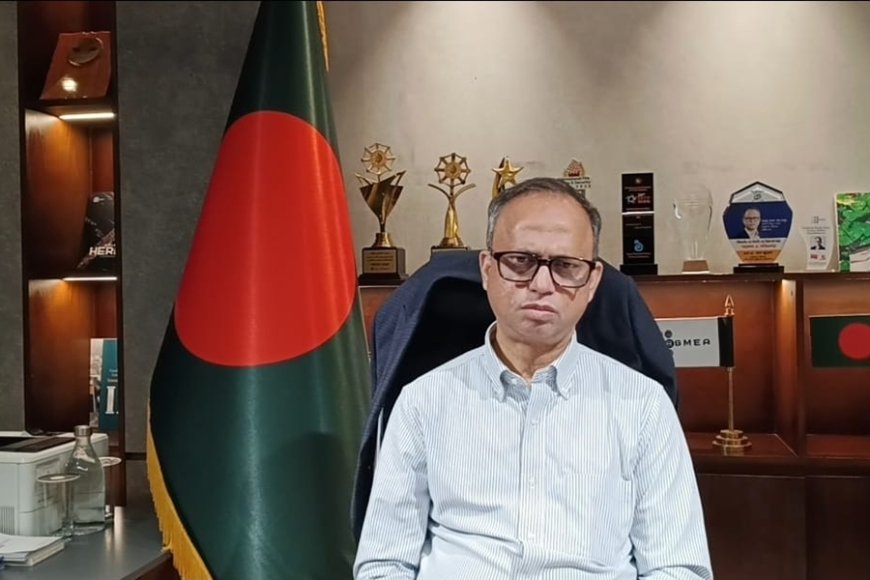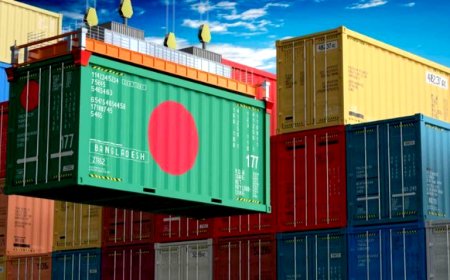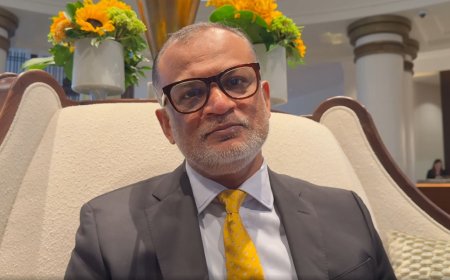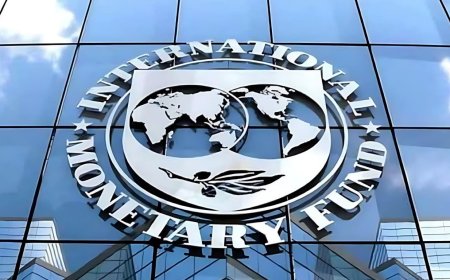BGMEA president says Bangladesh is strategically positioned to navigate the emerging era of global trade wars
BGMEA president says Bangladesh is strategically positioned to navigate the emerging era of global trade wars.

Bangladesh Well-Positioned Amid Global Trade Tensions: BGMEA President
In light of the United States’ recent decision to impose a 20% tariff on Bangladeshi exports, Bangladesh Garment Manufacturers and Exporters Association (BGMEA) President Mahmud Hasan Khan, in an exclusive interview with UNB, highlighted how global trade tensions are opening up new opportunities for the country’s apparel industry. While acknowledging the challenges ahead, Khan stressed that Bangladesh is uniquely positioned to benefit—provided it strengthens its infrastructure and logistics.
UNB: Does the current trade environment present a new opportunity for Bangladesh’s exports?
Khan: Absolutely. The unfolding global tariff wars present a strategic opening for Bangladesh to boost its exports, particularly to the US and other major markets. Compared to competitors like India and China—who face US tariffs of 25% and 30%, respectively—Bangladesh’s 20% tariff gives it a relative edge. This is likely to redirect a considerable share of global apparel orders toward us. However, to truly seize this opportunity, we must ensure swift and reliable shipment capabilities.
UNB: What steps must be taken to sustain and expand this growth?
Khan: Opportunity alone is not enough; we need strong supporting systems. That means upgrading Chittagong port to meet international standards, streamlining customs procedures, and ensuring uninterrupted gas and electricity supply to our factories. Infrastructure and logistics must improve, and we need to optimise our existing capacity to compete globally.
UNB: Is bringing in foreign firms for port management a viable option?
Khan: Engaging experienced international firms could be beneficial, but cost is a critical factor. If fees are too high, it could hurt our global competitiveness. We need to find the right balance between efficiency and affordability.
UNB: What are your immediate priorities for the BGMEA?
Khan: Ensuring uninterrupted gas and electricity supply is a top priority. We also need to guarantee a smooth, time-bound journey on the Dhaka-Chittagong highway—ideally within four hours. Additionally, we’re working to lower bank interest rates by tackling non-performing loans, pushing for a rational tax structure from the NBR, and improving law and order to ensure a stable business environment.
UNB: Is there potential to lower the 20% US tariff further?
Khan: Yes, and this is a crucial area of focus. If a product includes 20% or more US-origin raw materials—like cotton—it qualifies for partial tariff exemptions. For instance, 20% US content would reduce the effective tariff to 16%. The higher the US content, the greater the reduction—potentially down to zero on that portion.
UNB: What are the obstacles to implementing this content-based tariff relief?
Khan: The major issue is traceability. There’s no existing system to certify the US-origin content in a way acceptable to US authorities. Although US cotton is more expensive, it’s also cleaner, machine-harvested, and results in lower processing waste. We expect demand for US cotton to rise, especially as buyers begin requesting it to unlock tariff advantages.
UNB: What reforms are currently underway within the BGMEA?
Khan: We’ve digitised all our operations, enabling members to track activities online. A major milestone was the recent democratic election, with over 90% participation—a direct result of the July movement. This culture of free, fair elections will continue.
UNB: How is BGMEA handling alleged abuses of bonded warehouse facilities?
Khan: We’re committed to transparency. If the NBR provides concrete evidence of misuse, BGMEA will fully cooperate in taking action. However, no specific complaint has been lodged so far. Ironically, we’re often blamed for slowing down legal imports due to strict compliance checks.
UNB: Can all these reforms be completed within your term?
Khan: Many of the needed reforms are long-term projects. While we’ve initiated several, I won’t be able to complete all of them in my tenure. For example, we’ve already cut membership fees by 25%, and we’re working on simplifying taxes, establishing a member welfare fund, building a hospital for workers, and taking full administrative control of BGMEA University. These reforms will continue under future leadership.
UNB: How will BGMEA safeguard its members from defaulting buyers?
Khan: We will take strict measures against non-paying buyers. BGMEA plans to maintain a blacklist of such buyers and alert members accordingly. If a buyer refuses to accept goods after shipment or fails to pay, we’ll first attempt resolution through negotiation—either directly or via diplomatic channels. If needed, we will blacklist the buyer to prevent further losses to our members.
What's Your Reaction?






















































































